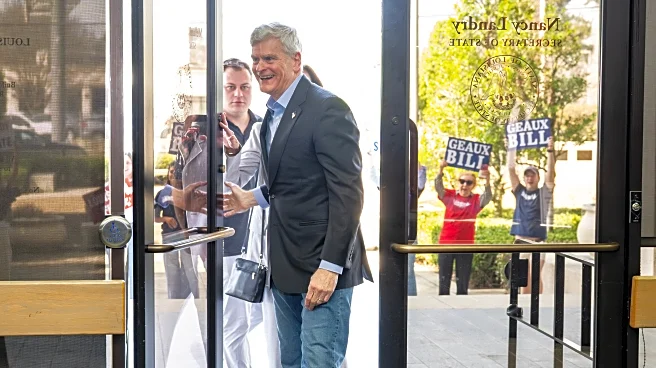What is the story about?
What's Happening?
Media outlets such as The Atlantic, CNN, and Newsmax have announced their refusal to sign the Pentagon's new press policy, which they argue threatens access to the complex unless reporters agree to restrictive conditions. The policy requires information to be approved for public release by an authorizing official, even if unclassified, with the risk of losing credentials for non-compliance. Journalism groups have consulted with Pentagon officials but found the policy too restrictive. The Pentagon Press Association has criticized the policy for intimidating DoD employees and threatening retaliation against reporters seeking unapproved information. The deadline for signing the policy is Tuesday, with most press association members likely to hand over their badges rather than comply.
Why It's Important?
The refusal by media outlets to sign the Pentagon's new press policy highlights significant concerns about press freedom and access to government information. The policy's restrictions could impede journalists' ability to report on national security issues, affecting public access to information and transparency. The move by these outlets underscores the importance of a free and independent press in upholding democratic principles and ensuring that the public remains informed about critical national security matters. The potential revocation of press credentials for non-compliance could limit journalists' ability to cover the U.S. military effectively, impacting the public's understanding of defense-related issues.
What's Next?
As the deadline for signing the new policy approaches, media organizations that have refused to comply may face challenges in accessing the Pentagon and reporting on military affairs. The situation may lead to further discussions between the Pentagon and media outlets to address the concerns raised by journalists. Advocacy groups and press associations are likely to continue lobbying for changes to the policy to protect press freedoms. The ongoing debate may also prompt legal challenges or legislative actions aimed at safeguarding journalists' rights to report on government activities without undue restrictions.

















